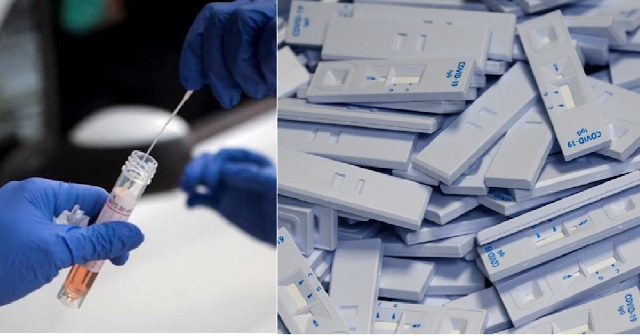Spain returns faulty test kits to China as COVID-19 death toll passes 4,000-mark

As Spain’s death toll hit 4,089, the Chinese embassy in Madrid said on Thursday (26 March) that the Spanish government had bought a batch of faulty COVID-19 testing kits from an unauthorised Chinese company, EURACTIV’s partner EFE reports.
The number of confirmed COVID-19 cases rose to almost 56,188 on Thursday (26 March), up 655 compared to the day before.
Spain’s efforts to roll out 640,000 rapid testing kits bought from companies in China and South Korea this week hit a setback when the first order of around 9,000 failed to meet specifications and had to be returned.
The Chinese embassy said the Spanish government had purchased the items from an unlicensed company called Shenzhen Bioeasy Biotechnology.
In a message on Twitter, it said the order had not been part of the €432 million ($466m) contract with China that the Spanish government announced Wednesday (25 March), which would include the delivery of 5.5 million testing kits.
“The Chinese ministry of commerce offered Spain a list of certified providers, which did not include Shenzhen Bioeasy Biotechnology. Shenzhen Bioeasy Biotechnology has not yet been licensed by the Chinese National Medical Products Administration to sell its products,” he said.
The head of Spain’s public health emergency department Fernando Simon confirmed in his daily briefing that the first batch of kits delivered to the country had been sent back to the provider, although he did not name the company in question.
“Spain obtained several providers and supply routes. The first one sent a batch of 9,000 tests that were validated at the National Center of Epidemiology and some hospitals (in Madrid)”.
However, “the specifications of the batch did not match up with the certification of quality that came with it, which meant they had to be returned and the company will change them,” he said.
The Spanish association of microbiologists (SEIMC) warned that the testing kits in this batch performed with an accuracy level of under 30%,
“With this level of accuracy, it is impossible to put them into routine use,” SEIMC spokeswoman María del Mar Tomás told EFE.





